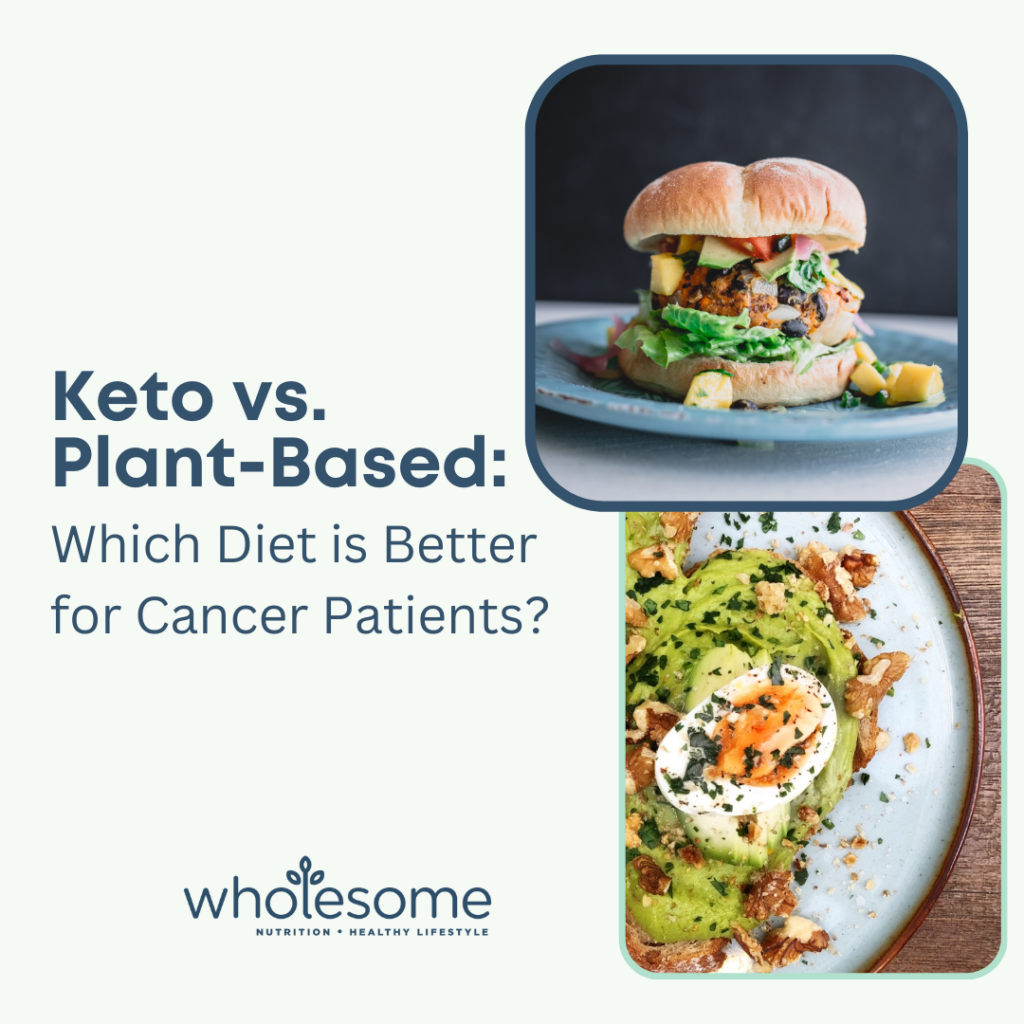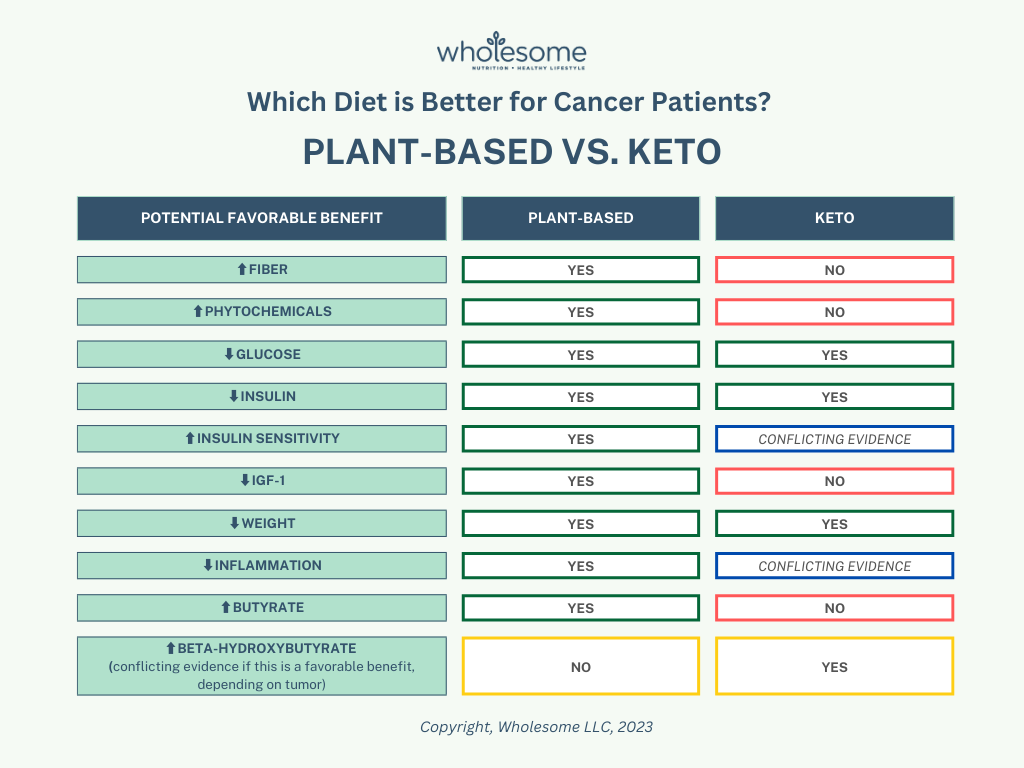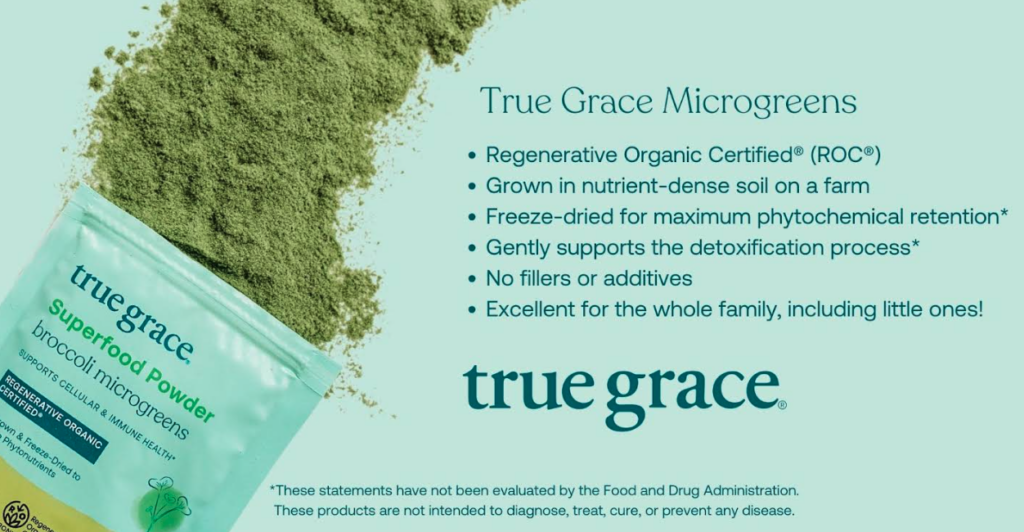The Wholesome Journey - Group Nutrition Coaching Program
Mentorship Program, 1:1 Nutrition Coaching with Alison
What do you want to learn more about?
Program Login
Podcast Features
November 22, 2023
Alison Tierney, MS, RD, CD, CSO
Alison is a registered dietitian, board-certified in oncology nutrition, and a cancer thriver. Her expertise in oncology nutrition and personal experience with her own cancer diagnosis and its treatment provide her with the unique perspective of being able to relate to her clients on an entirely different level. Her content is consistently focused on evidence-based guidelines and seeks to increase the awareness of the power of nutrition to complement traditional cancer therapies.
- Alison Tierney, MS, RD, CD, CSO
- Alison Tierney, MS, RD, CD, CSO
- Alison Tierney, MS, RD, CD, CSO
- Alison Tierney, MS, RD, CD, CSO
- Alison Tierney, MS, RD, CD, CSO
- Alison Tierney, MS, RD, CD, CSO
- Alison Tierney, MS, RD, CD, CSO
- Alison Tierney, MS, RD, CD, CSO
- Alison Tierney, MS, RD, CD, CSO
- Alison Tierney, MS, RD, CD, CSO
- Alison Tierney, MS, RD, CD, CSO
- Alison Tierney, MS, RD, CD, CSO
- Alison Tierney, MS, RD, CD, CSO
- Alison Tierney, MS, RD, CD, CSO
- Alison Tierney, MS, RD, CD, CSO
- Alison Tierney, MS, RD, CD, CSO
- Alison Tierney, MS, RD, CD, CSO
- Alison Tierney, MS, RD, CD, CSO
- Alison Tierney, MS, RD, CD, CSO
- Alison Tierney, MS, RD, CD, CSO
- Alison Tierney, MS, RD, CD, CSO
- Alison Tierney, MS, RD, CD, CSO
- Alison Tierney, MS, RD, CD, CSO
- Alison Tierney, MS, RD, CD, CSO
- Alison Tierney, MS, RD, CD, CSO
- Alison Tierney, MS, RD, CD, CSO
- Alison Tierney, MS, RD, CD, CSO
- Alison Tierney, MS, RD, CD, CSO
- Alison Tierney, MS, RD, CD, CSO
- Alison Tierney, MS, RD, CD, CSO
- Alison Tierney, MS, RD, CD, CSO
- Alison Tierney, MS, RD, CD, CSO
- Alison Tierney, MS, RD, CD, CSO
- Alison Tierney, MS, RD, CD, CSO
- Alison Tierney, MS, RD, CD, CSO
- Alison Tierney, MS, RD, CD, CSO
- Alison Tierney, MS, RD, CD, CSO
- Alison Tierney, MS, RD, CD, CSO
- Alison Tierney, MS, RD, CD, CSO
- Alison Tierney, MS, RD, CD, CSO
- Alison Tierney, MS, RD, CD, CSO
- Alison Tierney, MS, RD, CD, CSO
- Alison Tierney, MS, RD, CD, CSO
- Alison Tierney, MS, RD, CD, CSO
- Alison Tierney, MS, RD, CD, CSO
- Alison Tierney, MS, RD, CD, CSO
- Alison Tierney, MS, RD, CD, CSO
- Alison Tierney, MS, RD, CD, CSO
- Alison Tierney, MS, RD, CD, CSO
- Alison Tierney, MS, RD, CD, CSO
- Alison Tierney, MS, RD, CD, CSO
- Alison Tierney, MS, RD, CD, CSO
- Alison Tierney, MS, RD, CD, CSO
- Alison Tierney, MS, RD, CD, CSO
- Alison Tierney, MS, RD, CD, CSO
- Alison Tierney, MS, RD, CD, CSO
- Alison Tierney, MS, RD, CD, CSO
- Alison Tierney, MS, RD, CD, CSO
- Alison Tierney, MS, RD, CD, CSO
- Alison Tierney, MS, RD, CD, CSO
- Alison Tierney, MS, RD, CD, CSO
- Alison Tierney, MS, RD, CD, CSO
- Alison Tierney, MS, RD, CD, CSO
- Alison Tierney, MS, RD, CD, CSO
- Alison Tierney, MS, RD, CD, CSO
- Alison Tierney, MS, RD, CD, CSO
- Alison Tierney, MS, RD, CD, CSO
- Alison Tierney, MS, RD, CD, CSO
- Alison Tierney, MS, RD, CD, CSO
- Alison Tierney, MS, RD, CD, CSO
- Alison Tierney, MS, RD, CD, CSO
- Alison Tierney, MS, RD, CD, CSO
- Alison Tierney, MS, RD, CD, CSO
- Alison Tierney, MS, RD, CD, CSO
- Alison Tierney, MS, RD, CD, CSO
- Alison Tierney, MS, RD, CD, CSO
- Alison Tierney, MS, RD, CD, CSO
- Alison Tierney, MS, RD, CD, CSO
- Alison Tierney, MS, RD, CD, CSO
- Alison Tierney, MS, RD, CD, CSO
- Alison Tierney, MS, RD, CD, CSO
- Alison Tierney, MS, RD, CD, CSO
- Alison Tierney, MS, RD, CD, CSO
- Alison Tierney, MS, RD, CD, CSO
- Alison Tierney, MS, RD, CD, CSO
- Alison Tierney, MS, RD, CD, CSO
- Alison Tierney, MS, RD, CD, CSO
- Alison Tierney, MS, RD, CD, CSO
- Alison Tierney, MS, RD, CD, CSO
- Alison Tierney, MS, RD, CD, CSO
- Alison Tierney, MS, RD, CD, CSO
- Alison Tierney, MS, RD, CD, CSO
- Alison Tierney, MS, RD, CD, CSO
- Alison Tierney, MS, RD, CD, CSO
- Alison Tierney, MS, RD, CD, CSO
- Alison Tierney, MS, RD, CD, CSO
- Alison Tierney, MS, RD, CD, CSO
- Alison Tierney, MS, RD, CD, CSO
- Alison Tierney, MS, RD, CD, CSO
- Alison Tierney, MS, RD, CD, CSO
- Alison Tierney, MS, RD, CD, CSO
- Alison Tierney, MS, RD, CD, CSO
- Alison Tierney, MS, RD, CD, CSO
- Alison Tierney, MS, RD, CD, CSO
- Alison Tierney, MS, RD, CD, CSO
- Alison Tierney, MS, RD, CD, CSO
- Alison Tierney, MS, RD, CD, CSO
- Alison Tierney, MS, RD, CD, CSO
- Alison Tierney, MS, RD, CD, CSO
- Alison Tierney, MS, RD, CD, CSO
- Alison Tierney, MS, RD, CD, CSO
- Alison Tierney, MS, RD, CD, CSO
- Alison Tierney, MS, RD, CD, CSO
- Alison Tierney, MS, RD, CD, CSO
- Alison Tierney, MS, RD, CD, CSO
- Alison Tierney, MS, RD, CD, CSO
- Alison Tierney, MS, RD, CD, CSO
- Alison Tierney, MS, RD, CD, CSO
- Alison Tierney, MS, RD, CD, CSO
- Alison Tierney, MS, RD, CD, CSO
- Alison Tierney, MS, RD, CD, CSO
- Alison Tierney, MS, RD, CD, CSO
- Alison Tierney, MS, RD, CD, CSO
As cancer patients seek better nutrition during treatment and survivorship, one debate often arises.
Which diet is better: keto vs. plant-based? Both diets have gained popularity but differ in important ways.
The keto diet emphasizes high fat, moderate protein, and very low carbohydrates. It may include animal products, depending on how someone follows the diet. Proponents claim this low-carbohydrate, high-fat approach can starve cancer cells by limiting glucose.
However, plant-based diets focus on eating fruits, vegetables, whole grains, and legumes. Advocates argue these foods provide antioxidants and phytochemicals that support health and help reduce inflammation.
While research continues, more studies are needed on how these diets affect cancer outcomes. In this article, we explore the science, pros, and cons to help patients make informed nutrition decisions.
Understanding the Impact of Diet on Cancer
Cancer can affect, really, anyone. But, some individuals are at higher risk than others. When it comes to cancer, there are both modifiable and non-modifiable risk factors. For the purpose of this article, we will be focusing on the modifiable risk factors.
The American Institute for Cancer Research (AICR) and World Cancer Research Fund (WCRF) reports that “avoiding tobacco in any form, together with appropriate diet, nutrition and physical activity, and maintaining a healthy weight, have the potential to reduce much of the global burden of cancer” (1).
Also, a National Health and Nutrition Examination Survey study (NHANES) suggests “more than 80,000 new cancer cases to a poor diet in the US” (2).
For the purpose of this article, we primarily focus on nutrition as it relates to reducing cancer risk as a modifiable risk factor, although cancer is known to be caused by many different factors. And more specifically, a keto vs. plant-based diet against cancer.

What is a Plant-Based Diet? Is it a Vegan Diet?
Although there are different variations of a plant-based diet, (for example, a “plant-predominant” approach may incorporate small amounts of animal products alongside predominantly plant-based foods) for the purpose of this article, we will focus on what is called a whole-food plant-based diet (WFPBD). A WFBPD focuses on nutrient dense fruits, vegetables, whole grains, and legumes while aiming to minimize ultra-processed foods, dairy products, oils, and animal foods as much as possible. If one’s approach is exclusive to plant foods, it is by definition a vegan diet. However, not all vegan diets are WFPB.
As a result, a whole food, plant-based diet focuses on overall nourishment, like vitamins and minerals, rather than strict intake percentages. This approach is naturally lower in fat, includes enough protein, and provides plenty of carbohydrates.
The next section will describe the ketogenic diet so you can further understand keto vs. plant-based.

What is the Ketogenic Diet?
A ketogenic (or, keto) diet is often confused for a low-carbohydrate diet (LCD). Although they may be similar, a keto diet requires a very specific macronutrient distribution in order to produce the production of ketone bodies – one of the fuel sources for the body created from fat in the liver, when it is lacking carbohydrates.
The macronutrient distribution in a keto diet is typically very low carbohydrate with approximately 5% of calories from carbohydrates, high fat with about 75% of calories coming from fat, and moderate protein with about 20% of calories coming from protein.
Most ketogenic dietary approaches use animal products like meat, dairy, and fish, along with oils, some nuts and seeds, and non-starchy vegetables to meet calorie needs in effort to promote the production of ketone bodies. This most popular approach is an animal-based, ketogenic diet versus a plant-based ketogenic approach.
How Might Diet Reduce Cancer Risk?
Research has identified several possibilities as to how nutrition may play a role in reducing the risk of cancer development (along with several other chronic health conditions). And it goes far beyond just “eat your fruits and vegetables”, but how certain foods or dietary patterns specifically play a role in:
- Weight
- Insulin-Like Growth Factor 1 (IGF-1) Levels
- Insulin Resistance
- Fiber
- Inflammation
- Phytochemicals
- & Short-Chain Fatty Acids
Within this article, we’ll review how the keto vs. plant-based diet may provide positive benefits as it relates to each of these mechanisms.

Weight Loss in the Plant-Based vs. Keto Diet
Unfortunately, higher body weight is associated with increased risk for 13 different cancers. This is likely related to increased inflammation, hormones, and growth factors associated with weight gain (1).
When looking at both dietary approaches, both diets aim to eliminate processed foods and refined carbohydrates which are important foods to limit in the diet as both are associated with increased risk of weight gain.
How they differ, associated with impact on weight, is that the plant-based diet is naturally less calorically dense and increases fullness when consumed, thus leading to weight loss (3). As for the keto diet, a decrease in appetite has been observed, thus resulting in lower calorie consumption and weight loss (4).
In a 2021 inpatient, randomized crossover clinical trial (meaning the study subjects followed one dietary approach to start and switched to the other approach after) put the WFPBD and keto diet to the test. After two weeks, while on the WFPBD, individuals consumed significantly less calories and had a significant decrease in body fat. On the flip side, when adhering to the keto diet, participants lost more weight, however, most of the weight loss was a loss of lean body mass. (5)
Weight Loss, Lean Body Mass, and Cancer in Keto vs. Plant-Based Diets
In the respects of a cancer patient, although the research is unknown at this time, the loss of lean body mass could be of great concern and a risk factor for cancer cachexia (a syndrome associated with continued decline in muscle mass [without fat loss] and can ultimately lead to functional impairment, a weakening effect of chemotherapy, and an increase in mortality [or death].) More research is needed to identify if the loss of muscle related to a keto diet could lead to this risk. (6)
As an oncology dietitian, a primary goal for our patients is to help our patients maintain muscle mass as much as possible throughout treatment and beyond as it has been shown to lead to improved outcomes during cancer treatment.
Furthermore, long-term detrimental side effects of the keto diet need to be of consideration. Outside of potentially greater reduction in lean body mass, the keto diet is associated with higher LDL (“bad cholesterol”) levels and higher levels of fatigue (7).
Oppositely, the WFPBD has been found to lead to significantly lower levels of LDL cholesterol and total cholesterol. (8)

IGF-1 Levels in the Plant-Based vs. Keto Diet
IGF-1, or insulin like growth factor 1, is associated with several cancers as higher levels are associated with stimulating growth (proliferation) and reducing apoptosis (or, programmed cell death of damaged and harmful cells before they can reproduce [we want this]) (9, 10).
Research has identified that individuals following a vegan diet (with similar characteristics of a WFPBD) have significantly lower levels of IGF-1 and higher levels of IGF-binding proteins 1 and 2 (think of these as scooping up or “eating up” the IGF-1 [we want this]). (10)
It’s hypothesized these results are related to plant-protein vs. animal protein and the lower protein intake associated with a plant-based diet (Psssst – yes, lower, but adequate, intake of protein is associated with lower cancer risk). (11)
As it relates to a keto diet and IGF-1 levels, the reduction in IGF-1 levels was not significant. (12)
Insulin Resistance in the Plant-Based vs. Keto Diet
Insulin, the hormone produced by our pancreas in response to glucose intake, is of common interest as it relates to cancer risk. High insulin levels are associated with the promotion of tumor growth (13). Thus, it is crucial to have normal, healthy levels of insulin and to ensure that insulin is working effectively (known as insulin sensitivity).
A reduction in insulin has been associated with both a WFPBD and the keto approach. (12, 14, 15)
Whereas, preclinical studies on the keto diet suggest increased insulin resistance (rather than improved insulin sensitivity, which is favorable). (16)
Fiber in the Plant-Based vs. Keto Diet
Fiber is likely the most outstanding difference between the plant-based and keto approaches. Because fiber is only found in plant-foods and not animal foods, thus, the keto approach typically has little fiber.
Why is fiber so important to reducing cancer risk?
A 2016 meta-analysis study (where they review the results of many studies done on the topic) reviewing 45 studies, showed a decrease is cancer death and all-cause death with 90-grams of fiber rich, whole grain intake per day (the equivalent to 3 servings per day, such as 2 slices of whole grain bread and 1 cup of cooked oats. (17)
A higher-fiber diet has also been associated with a decrease in Ki67 – whereas higher levels of this marker are associated with cancer proliferation (the growth and progression of cancer cells) (18,19).
Next, fiber will also be of discussion below when we discuss short-chain fatty acids.
Inflammation in the Plant-Based vs. Keto Diets
Higher levels of inflammation are associated with increased cancer risk (and several chronic diseases). Typically when weight loss occurs, which we’ve noted does typically occur in both the WFPBD and keto approach, we commonly see reductions in inflammation. (20)
Research has shown a reduction in inflammation with a WFPBD approach, however, although data is limited, a keto diet has demonstrated some proinflammatory effects (21, 22, 23). Further research is needed in the keto approach as it relates to inflammation.
Phytochemicals in the Plant-Based vs. Keto Diet
Phytochemicals are plant nutrients and are only found in plant foods and are thus abundant in the WFPBD approach, and limited within the keto approach. These nutrients have shown several positive benefits in reducing cancer risk such as reducing inflammation, improving the immune system, slowing the growth rate of cancer cells, and more. (1, 23, 25)
To learn more about phytochemicals and their potential role in a cancer-fighting diet, read my blog post here.

Short-Chain Fatty Acids in the Plant-Based vs. Keto Diet
What are short-chain fatty acids (SCFAs)? Great question!
Beneficial bacteria produce SCFAs within our gut microbiome. In order for bacteria to produce these SCFAs, they require fuel, which happens to be soluble fiber and resistant starch – found, again, only in plant-foods. An example of a SCFA is butyrate.
SCFAs and the Plant-Based Diet
A diet rich in whole plant foods, like a WFPBD, is associated with higher levels of butyrate, which has demonstrated anticancer and anti-inflammatory effects. (25, 26)
SCFAs, Ketones, and the Ketogenic Diet
As for the keto diet as it relates to SCFAs, it is associated with higher levels of the ketone body β-hydroxybutyrate (βHB) which has been shown to have similar effects as butyrate resulting in anticancer and anti-inflammatory effects. However, butyrate – like that within the WFPBD approach – has stronger anti-cancer and anti-inflammatory effects than βHB. (27)
Although, some research has brought forward concern as to whether βHB has anticancer effects vs. pro-inflammatory and tumor progression effects (in in vitro [test tube] and in vivo [a living organism]). (27, 28, 29)
Yes, you read that right. There is some research that shows βHB may have anticancer effects and other research suggesting pro-inflammatory effects along with increased tumor progression effects. This is referred to as the “βHB paradox”.
Whether or not this ketone body has anti- or pro- cancer effects is likely dependent on if the tumor has a “ketone metabolizing enzyme”. If that is the case, a patient may benefit from a ketogenic dietary approach. However, there is a concern that even then, a tumor may be able to adapt and develop a tolerance to a keto diet, deeming it no longer beneficial. (30)
Overall, research on SCFAs and plant-based anti-inflammatory effects is strong, while keto and βHB research remains limited.
Conclusion & Summary: Choosing the Right Diet for Cancer Patients
What the Evidence Suggests Overall
After reviewing the current evidence available on nutrition and cancer and the keto vs. plant-based approach, the current data strongly supports a plant-predominant approach for both the prevention and control of cancer.
Research suggests the plant-based dietary approach may lead to weight loss, reduced levels of IGF-1, improved insulin resistance, increased fiber intake, a reduction in inflammation, an abundant amount of phytochemicals, and the production of SCFAs as potential mechanisms as to why and how nutrition may play a substantial role in cancer prevention.
As for the ketogenic dietary approach, positively it has shown benefits against cancer in the area of weight loss, improvements in insulin, and potentially the production of βHB. However, the ketogenic diet has an association with higher levels of LDL and fatigue. And conflicting evidence exists as to if it has pro- or anti-inflammatory effects, potentially increased insulin resistance, and as to whether βHB has anticancer or proinflammatory and tumor proliferation effects.
Current Guidance and Research Gaps
Research must continue in both dietary approaches. However, at this time, current research suggests favoring the plant-based dietary approach as a tool to reduce cancer risk and its recurrence – which is aligned with guidelines from the American Institute for Cancer Research and World Cancer Research Fund, American Cancer Society, and World Health Organization.

Wholesome LLC’s blog content is reader-supported. Some posts contain affiliate links. As a result, if you purchase through these links, we may earn a small commission at no extra cost to you. Thank you for support this site!
Blog content updated December 2024.
References
- World Cancer Research Fund and the American Institute for Cancer Research. Diet, Nutrition, Physical Activity and Cancer: A Global Perspective. Published 2018. Accessed March 7, 2023. https://www.wcrf.org/wp-content/uploads/2021/02/Summary-of-Third-Expert-Report-2018.pdf
- Zhang FF, Cudhea F, Shan Z, et al. Preventable cancer burden associated with poor diet in the United States. JNCI Cancer Spectr. 2019;3(2):pkz034. doi:10.1093/jncics/pkz034
- Slavin J, Green H. Dietary fibre and satiety. Nutr Bull. 2007;32(s1):32–42. doi:10.1111/ j.1467-3010.2007.00603.x
- Gibson AA, Seimon RV, Lee CMY, et al. Do ketogenic diets really suppress appetite? a systematic review and meta-analysis. Obes Rev. 2015;16(1):64–76. doi:10.1111/obr.12230 [PubMed: 25402637]
- Hall KD, Guo J, Courville AB, et al. Effect of a plant-based, low-fat diet versus an animalbased, ketogenic diet on ad libitum energy intake. Nat Med. 2021;27(2):344–353. doi:10.1038/ s41591-020-01209-1 [PubMed: 33479499]
- Ni, Jun, and Li Zhang. “Cancer Cachexia: Definition, Staging, and Emerging Treatments.” Cancer management and research vol. 12 5597-5605. 9 Jul. 2020, doi:10.2147/CMAR.S261585.
- Johnston CS, Tjonn SL, Swan PD, White A, Hutchins H, Sears B. Ketogenic low-carbohydrate diets have no metabolic advantage over nonketogenic low-carbohydrate diets. Am J Clin Nutr. 2006;83(5):1055–1061. doi:10.1093/ajcn/83.5.1055 [PubMed: 16685046]
- Gardner CD, Coulston A, Chatterjee L, Rigby A, Spiller G, Farquhar JW. The effect of a plantbased diet on plasma lipids in hypercholesterolemic adults: a randomized trial. Ann Intern Med. 2005; 142(9):725–733. doi:10.7326/0003-4819-142-9-200505030-00007 [PubMed: 15867404]
- Knuppel A, Fensom GK, Watts EL, et al. Circulating insulin-like growth factor-I concentrations and risk of 30 cancers: prospective analyses in UK Biobank. Cancer Res. 2020;80(18): 40144021. doi:10.1158/0008-5472.CAN-20-1281 [PubMed: 32709735]
- Guevara-Aguirre J, Balasubramanian P, Guevara-Aguirre M, et al. Growth hormone receptor deficiency is associated with a major reduction in pro-aging signaling, cancer, and diabetes in humans. Sci Transl Med. 2011;3(70):70ra13. doi:10.1126/scitranslmed.3001845.
- Allen NE, Appleby PN, Davey GK, Kaaks R, Rinaldi S, Key TJ. The associations of diet with serum insulin-like growth factor I and its main binding proteins in 292 women meat-eaters, vegetarians, and vegans. Cancer Epidemiol Biomarkers Prev. 2002;11(11):1441–1448. [PubMed: 12433724]
- Fontana L, Klein S, Holloszy JO. Long-term low-protein, low-calorie diet and endurance exercise modulate metabolic factors associated with cancer risk. Am J Clin Nutr. 2006;84(6):1456–1462. doi:10.1093/ajcn/84.6.1456 [PubMed: 17158430]
- Cohen CW, Fontaine KR, Arend RC, et al. A ketogenic diet reduces central obesity and serum insulin in women with ovarian or endometrial cancer. J Nutr. 2018;148(8):1253–1260. doi:10.1093/jn/nxy119 [PubMed: 30137481]
- Hopkins BD, Pauli C, Du X, et al. Suppression of insulin feedback enhances the efficacy of PI3K inhibitors. Nature. 2018;560(7719):499–503. doi:10.1038/s41586-018-0343-4 [PubMed: 30051890]
- Kahleova H, Petersen KF, Shulman GI, et al. Effect of a low-fat vegan diet on body weight, insulin sensitivity, postprandial metabolism, and intramyocellular and hepatocellular lipid levels in over weight adults: a randomized clinical trial. JAMA Netw Open. 2020;3(11):e2025454. doi:10.1001/jamanetworkopen.2020.25454 [PubMed: 33252690]
- Schreck KC, Hsu FC, Berrington A, et al. Feasibility and biological activity of a ketogenic/ intermittent-fasting diet in patients with glioma. Neurology. 2021;97(9):e953–e963. doi:10.1212/ WNL.0000000000012386 [PubMed: 34233941]
- Grandl G, Straub L, Rudigier C, et al. Short-term feeding of a ketogenic diet induces more severe hepatic insulin resistance than an obesogenic high-fat diet. J Physiol. 2018;596(19):4597–4609. doi:10.1113/JP275173 [PubMed: 30089335]
- Aune D, Keum N, Giovannucci E, et al. Whole grain consumption and risk of cardiovascular disease, cancer, and all cause and cause specific mortality: systematic review and dose-response meta-analysis of prospective studies. BMJ. 2016; 353:i2716. doi:10.1136/bmj.i2716 [PubMed: 27301975]
- Davey, Matthew G et al. “Ki-67 as a Prognostic Biomarker in Invasive Breast Cancer.” Cancers vol. 13,17 4455. 3 Sep. 2021, doi:10.3390/cancers13174455.
- O’Keefe SJ, Li JV, Lahti L, et al. Fat, fibre and cancer risk in African Americans and rural Africans. Nat Commun. 2015;6:6342. doi:10.1038/ncomms7342 [PubMed: 25919227]
- Forsythe LK, Wallace JM, Livingstone MB. Obesity and inflammation: the effects of weight loss. Nutr Res Rev. 2008;21(2):117–133. doi:10.1017/S0954422408138732 [PubMed: 19087366]
- Aleksandrova K, Koelman L, Rodrigues CE. Dietary patterns and biomarkers of oxidative stress and inflammation: a systematic review of observational and intervention studies. Redox Biol. 2021;42:101869. doi:10.1016/j.redox.2021.101869 [PubMed: 33541846]
- Barbaresko J, Koch M, Schulze MB, Nöthlings U. Dietary pattern analysis and biomarkers of lowgrade inflammation: a systematic literature review. Nutr Rev. 2013;71(8):511–527. doi:10.1111/ nure.12035 [PubMed: 23865797]
- Phytochemicals: The Cancer Fighters in Your Foods. (n.d.). Retrieved January 25, 2018, from http://www.aicr.org/reduce-your-cancer-risk/diet/elements_phytochemicals.html
- Hanhineva K, Torronen R, Bondia-Pons I, et al. Impact of dietary polyphenols on carbohydrate metabolism. Int J Mol Sci. 2010;11(4):1365-1402.
- Pryde SE, Duncan SH, Hold GL, Stewart CS, Flint HJ. The microbiology of butyrate formation in the human colon. FEMS Microbiol Lett. 2002;217(2): 133–139. doi:10.1111/ j.1574-6968.2002.tb11467.x [PubMed: 12480096]
- McQuade JL, Daniel CR, Helmink BA, Wargo JA. Modulating the microbiome to improve therapeutic response in cancer. Lancet Oncol. 2019; 20(2):e77–e91. doi:10.1016/ S1470-2045(18)30952-5 [PubMed: 30712808]
- Chriett S, Dąbek A, Wojtala M, Vidal H, Balcerczyk A, Pirola L. Prominent action of butyrate over β-hydroxybutyrate as histone deacetylase inhibitor, transcriptional modulator and anti-inflammatory molecule. Sci Rep. 2019;9(1):742. doi:10.1038/s41598-018-36941-9 [PubMed: 30679586]
- Ang QY, Alexander M, Newman JC, et al. Ketogenic diets alter the gut microbiome resulting in decreased intestinal Th17 cells. Cell. 2020;181(6): 1263–1275.e16. doi:10.1016/j.cell.2020.04.027 [PubMed: 32437658]
- Rodrigues LM, Uribe-Lewis S, Madhu B, Honess DJ, Stubbs M, Griffiths JR. The action of β-hydroxybutyrate on the growth, metabolism and global histone H3 acetylation of spontaneous Shah and Iyengar Page 12 JAMA Oncol. Author manuscript; available in PMC 2023 May 15. Author Manuscript Author Manuscript Author Manuscript Author Manuscriptmouse mammary tumours: evidence of a β-hydroxybutyrate paradox. Cancer Metab. 2017;5:4. doi:10.1186/s40170-017-0166-z [PubMed: 28261475]
- Shah, U. A., & Iyengar, N. M. (2022). Plant-Based and Ketogenic Diets As Diverging Paths to Address Cancer: A Review. JAMA oncology, 8(8), 1201–1208. https://doi.org/10.1001/jamaoncol.2022.1769.
- Ornish D, Weidner G, Fair WR, et al. Intensive lifestyle changes may affect the progression of prostate cancer. J Urol. 2005;174(3):1065–1069. doi:10.1097/01.ju.0000169487.49018.73 [PubMed: 16094059]
- Frattaroli J, Weidner G, Dnistrian AM, et al. Clinical events in prostate cancer lifestyle trial: results from two years of follow-up. Urology. 2008; 72(6):1319–1323. doi:10.1016/j.urology.2008.04.050 [PubMed: 18602144]
Keto vs. Plant-Based: Which Diet is Better for Cancer Patients?
Leave a Reply Cancel reply
Featured Articles
Wholesome LLC is not a medical practice, and its employees cannot offer medical advice. This website provides educational information but it is not a substitute for medical advice from a licensed medical professional who is familiar with your particular facts and circumstances. The information contained on this website is not intended to diagnose, treat, or cure any disease and shall not be construed as medical advice. The information and education on this website is provided for you to use at your own discretion.
You can further review our disclaimer here.
Wholesome
About Alison
Courses & Programs
The Wholesome Journey
Free Resources
FAQs
Press & Media
Recipes
Blog
Contact Us
Shop
© 2026 Wholesome, LLC All rights reserved.
Privacy Policy
Terms of Use
Disclaimer
Mobile Terms of Service



Be the first to comment